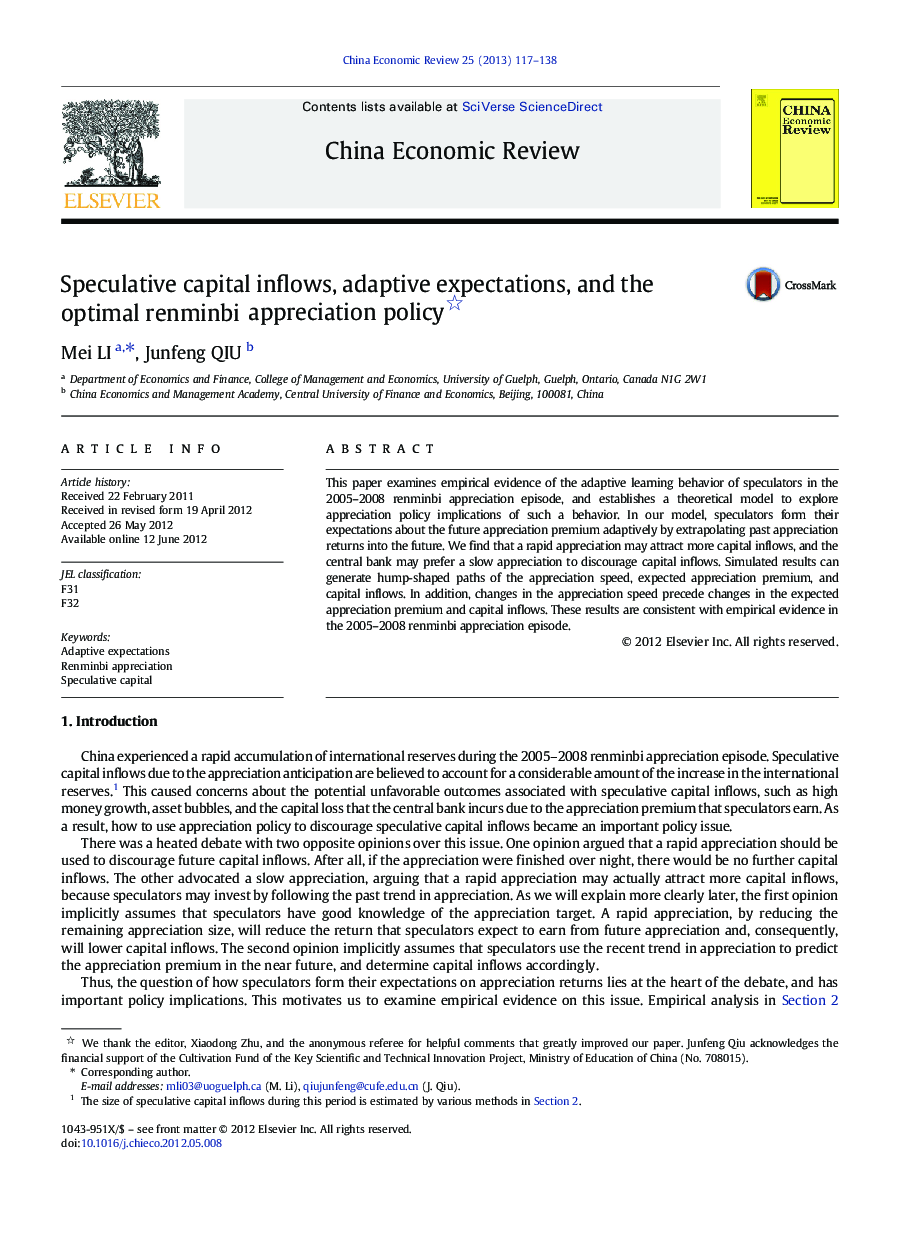| Article ID | Journal | Published Year | Pages | File Type |
|---|---|---|---|---|
| 5047593 | China Economic Review | 2013 | 22 Pages |
This paper examines empirical evidence of the adaptive learning behavior of speculators in the 2005-2008 renminbi appreciation episode, and establishes a theoretical model to explore appreciation policy implications of such a behavior. In our model, speculators form their expectations about the future appreciation premium adaptively by extrapolating past appreciation returns into the future. We find that a rapid appreciation may attract more capital inflows, and the central bank may prefer a slow appreciation to discourage capital inflows. Simulated results can generate hump-shaped paths of the appreciation speed, expected appreciation premium, and capital inflows. In addition, changes in the appreciation speed precede changes in the expected appreciation premium and capital inflows. These results are consistent with empirical evidence in the 2005-2008 renminbi appreciation episode.
⺠We study adaptive learning behavior of speculators during renminbi appreciation. ⺠Empirical evidence of such behavior is examined. ⺠We establish a model to study policy implications of such behavior. ⺠A rapid appreciation may attract more capital inflows. ⺠The central bank may prefer a slow appreciation to discourage capital inflows.
